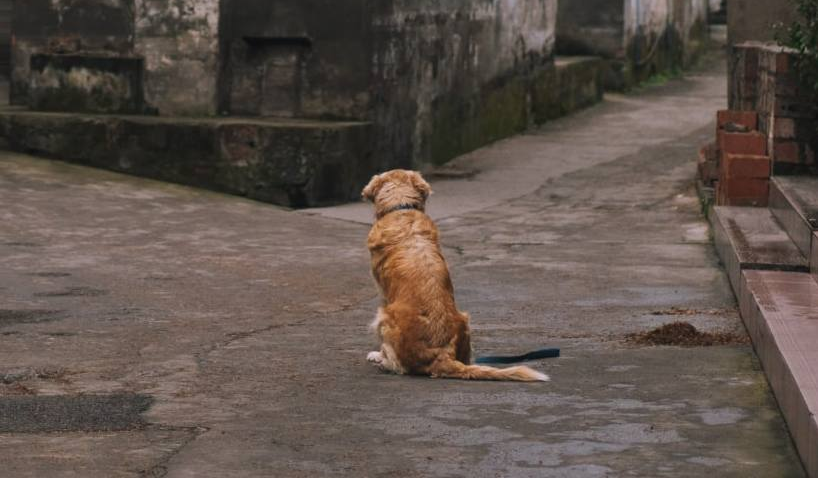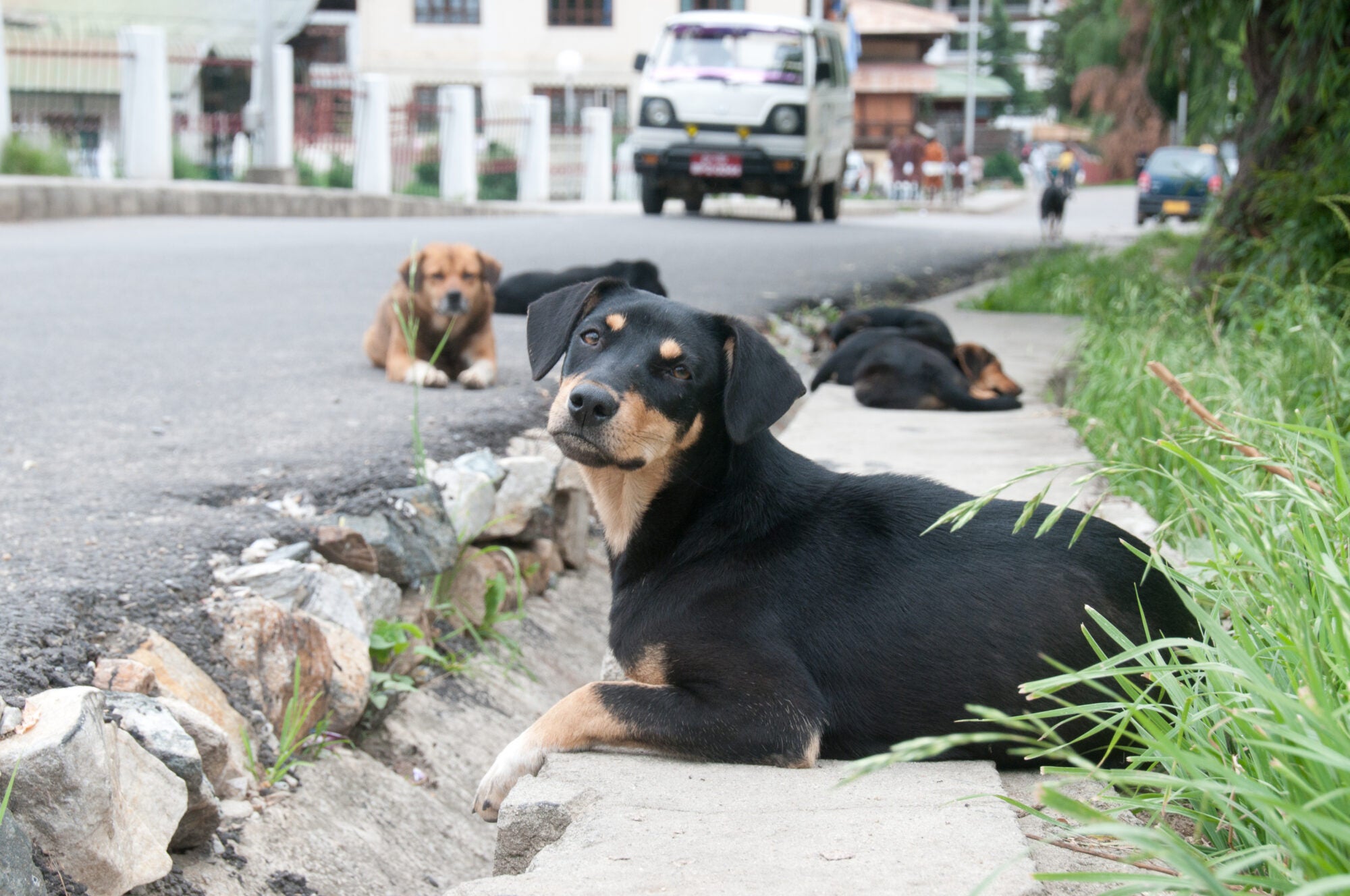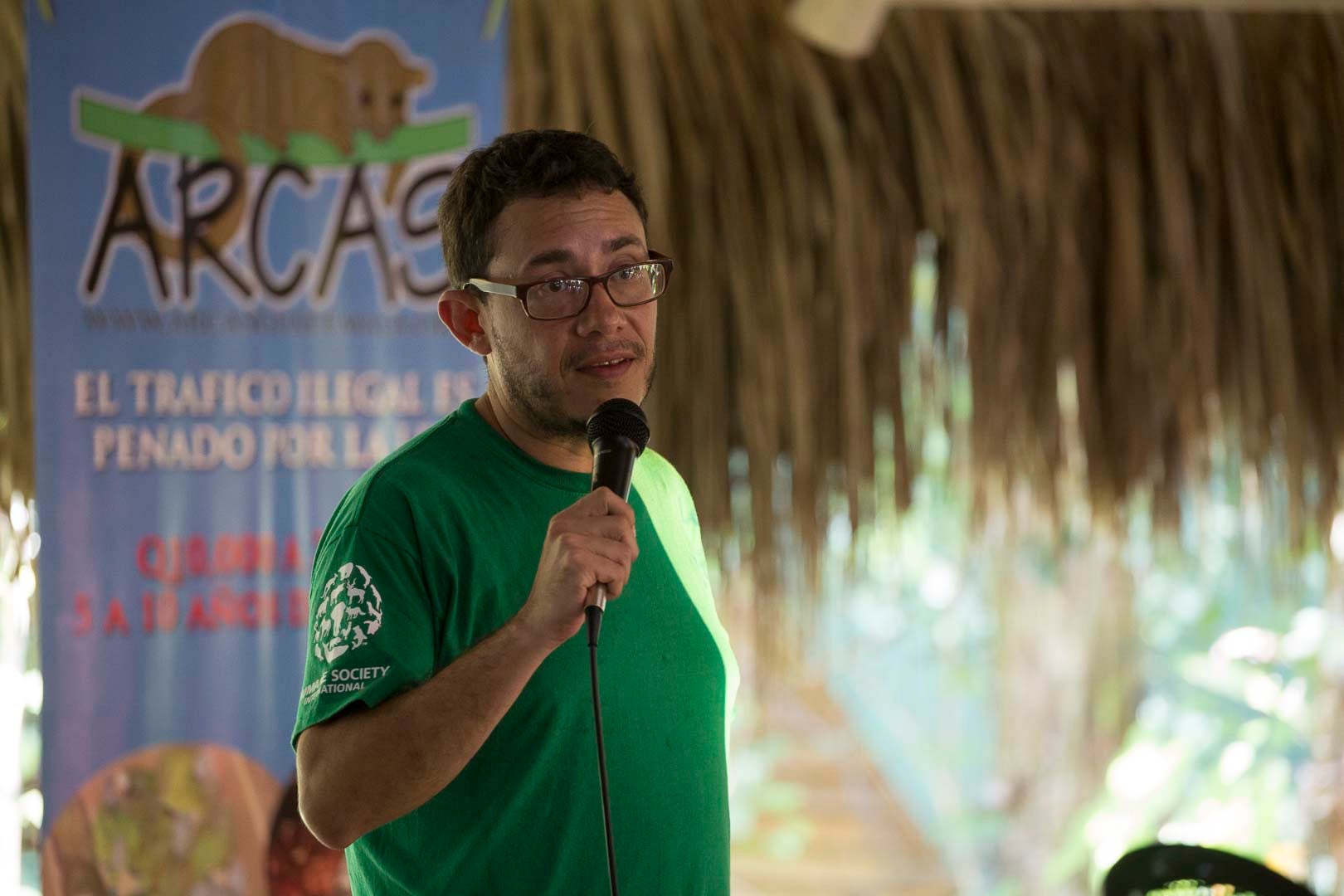
MEXICO CITY, Mexico—Thanks to a collaboration between Mexico City’s Secretariat of Disaster Risk Management and Civil Protection and Humane Society International/Mexico, over 100 officials from various municipalities—including firefighters, members of search and rescue units, and community brigade personnel—received training on handling animals in crisis. The training, offered throughout 2024, focused on disaster response and pet first aid, covering topics such as CPR and respiratory emergency care.
“Mexico City is an important geographic priority for civil protection efforts to prepare the population for a disaster, and now animals are being included in these exercises,” said Felipe Márquez, program manager, disaster response, of Humane Society International/Latin America.
HSI/Mexico has regularly collaborated with the authorities of Mexico City, particularly after the earthquake of September 19, 2017, when the organization provided help to more than 6,200 animals through emergency veterinary clinics. “Mexico City is highly vulnerable to disasters, as we were reminded by the earthquakes in 1985 and 2017, which resulted in a significant number of fatalities and injuries,” said Marquez.
Mexico is one of the countries in the world with the greatest telluric (subsurface electrical) activity. According to statistics, more than 90 earthquakes are recorded per year with a magnitude greater than 4 degrees on the Richter scale, which is equivalent to 60% of all telluric movements that are recorded in the world.
Strengthening local capacities is a key focus for HSI/Mexico, which seeks to build a culture of prevention that includes animals in disaster planning. This involves coordinated efforts to set up temporary shelters where people can safely stay with their pets during emergencies.
“From February to August, we have provided four training sessions for over 100 officials from different departments in Mexico City. The reception has been very positive, with attendees noting that the topics covered are highly relevant to their daily work and crucial for managing the impact of disasters,” says Márquez.
Coordination between the non-governmental organization and government authorities allows for greater response capacity in the face of the current hurricane season, as well as in the event of any eventual emergency in Mexico City and the rest of the country.
ENDS
Media contact: Magaly Garibay, mgaribay@idee.agencia; (+52 55) 5211 873, ext. 104



